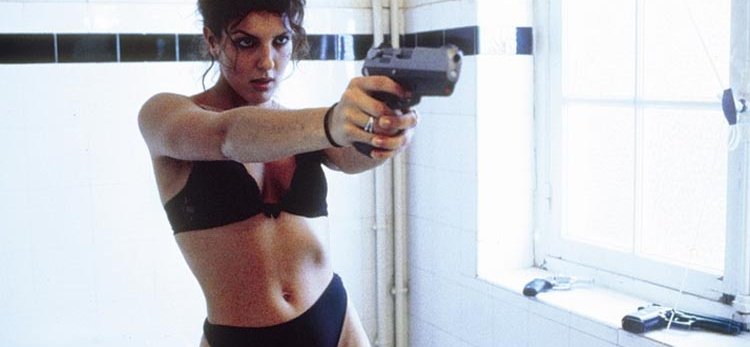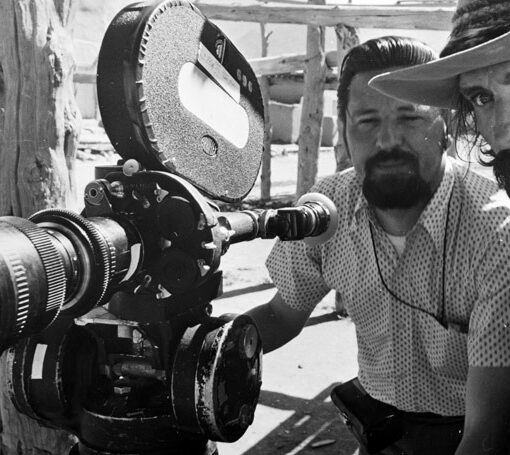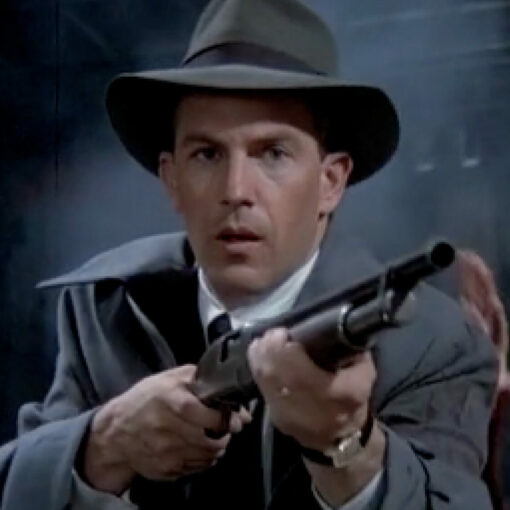There’s an inherent irony in film censorship: if some films are so abhorrent and individuals guaranteed to be damaged by watching them that they require censorship or prohibition on their exhibition / dissemination, then why aren’t the censors affected? If there were any truth to the ideology behind censorship – especially on moral grounds – then society would need protection from the censors.
To overcome the risks associated with exposure to such noxious artists as make the despicable films worthy of censorship, the censor must be a proverbial “cut above” the ordinary person so as not to be personally affected by the material they view and censor. At least that’s the rationale when choosing censors entrusted with protecting the values of the community from contamination by offensive movies. The censor is the bastion of moral virtue, of the very preservation of decent civilization: the arbiter of acceptable aesthetics. Consider this case in point. The place – Australia, the land down under as it likes to refer to itself.
When the Adrian Lyne film Lolita was passed in Australia with an R-rating in 1999, Christians petitioned conservative senators to have it banned, claiming that the censors had lost touch with community standards. One of the loudest voices in favour of banning the film was South Australian senator Trish Draper. Draper was typical of what Australians term a “wowser” and took upon herself the right to demand censorship of film in the name of protecting the Australian community’s morals from cinematic condemnation. She knew more than the censors, who were obviously desensitized by the demands of their job. She was galvanized in her bid to stop Lolita after collaborating with Queensland Nationals Senator Julian McGuaran to ban Pasolini’s Salo, despite the film being available uncut on DVD in Criterion Collection and BBFC versions. To Draper and McGuaran, Australians were either morally superior to or comparably gullible and easier corrupted than their US and UK audiences and had to be protected from all social evils. That, after all, was the wowser credo, the term being coined from a Christian temperance slogan of the early C19th – “We Only Want Social Evils Removed”.

Draper rallied others to her side, the collective petitioning the Prime Minister to intervene and block Lolita’s Australian release, claiming that as it depicted a pedophile in sympathetic terms it was a moral abomination. Then Prime Minister John Howard – a Methodist who lied to the Australian population about refugees seeking entry into the country so as to arguably restrict non-WASP immigration – acquiesced. Chief Censor Kathryn Paterson, however, would have none of this nonsense: she considered the film art and refused to ban it and thus deprive Australian adults of the right to watch what they want. Draper was furious when the film was released and turned her sights on another film – the French import Baise Moi: here, as the film contained sexually explicit material, she and her Christian supporters succeeded in having the film banned as pornography (and Baise Moi remains banned in Australia at time of writing).
The moral of the story? Ah – Trish Draper was later convicted of defrauding taxpayer funds to take her young lover on a “study tour” of Europe – specifically to countries where both Lolita and Baise Moi were freely available. Did she protest this? Of course not. Though she resigned from Parliament, she was back years later, with Liberal Party endorsement, running yet again on a morals platform. Ironic you see – the censor, Kathryn Paterson, was an educated and intelligent woman who would not bow to Christian pressure while the advocate of stricter censorship to preserve moral decency, Trish Draper, was a cheating hypocrite.
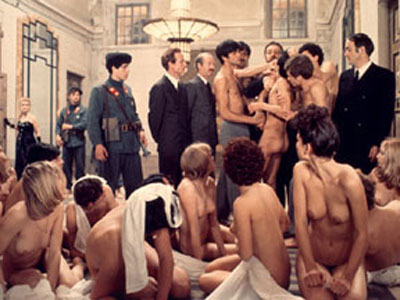
I make light of this but the Lolita case – and Draper – contributed to a conservative creep that today amounts to an Australian government push to mandatory filter the Internet according to a secret blacklist of websites the details and contents of which are, conveniently, exempt from the country’s freedom of information act. In Draper’s home state of South Australia, her moral grounds for censorship were taken up by Christian political party Family First. The party’s elected senator, Dennis Hood secretly snuck a law through State Parliament that all R-rated films (including not just Lolita but such Academy Award winners as The Deer Hunter, The Godfather and Australia’s own Mad Max and Wolf Creek) had to be housed in a separate section of any DVD retailer with a warning that the contents of these films were likely to cause offense. Australia, you see, censors films on the grounds of offense – and who’s offended: wowsers like Trish Draper. The Family First law prevent R-rated films from being advertised, on the grounds of preventing exposure to “pornography”.
I’ve researched the case and its consequences thoroughly for an ebook pending release towards the end of 2011. The specifics of the Lolita case I wrote up and released in a mini e-book – Lolita vs. God’s Law – and released it alongside a case study in Australian film censorship from an earlier era, the treatment of Bo Vibenius’ rape-revenge drama Thriller: a Cruel Picture – Censorship: a Cruel Picture. Yup: Quentin Tarantino may call it the best rape-revenge film ever made and it can be released uncut on DVD for sale on Amazon.com but Australian customs will confiscate any imported copy and can fine and even imprison the importer.
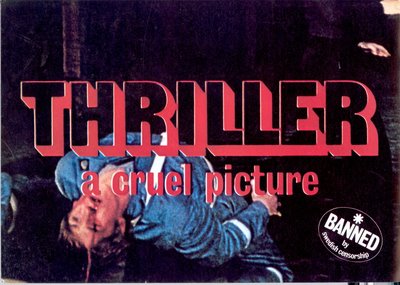
Oh, and you know also what this wowserland down under euphemistically likes to call itself? Get this – “the clever country”. Not a lot to be patriotic about if you’re an Australian who likes movies – government determines what you can and cannot see: the country is a democracy without a free speech guarantee. But when the US goes to war, oh yes, wowserland duly follows.
Any reader wishing to follow up these issues in further detail is invited to peruse my e-books on the cases – available for a limited time only:

